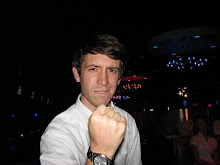Taken from Letters to a Young Lawyer by Alan Dershowitz:
In the world in which we live today, a lawyer without any enemies is likely to be a coward and a sycophant. A lawyer with the right enemies is often an advocate who has taken on powerful interests and stood up for the poor, the disenfranchised and the despised.
Don't try to become a "Sara Lee" lawyer. Remember the slogan: "Nobody doesn't like Sara Lee." Of course not. It's a cake! You're a lawyer in an adversarial system. If everybody likes you, you're doing something wrong. You're not being tough enough. You're not taking on controversial cases. You're putting your friendship with other lawyers above the interests of your clients. You're sucking up.
I'm not proposing that you be gratuitously offensive. I know I sometimes am. As my mother says, "You catch more flies with honey than with vinegar." Though we're not in the fly-catching business, it is often better to use friendship than enmity to serve the interests of your clients. But enmity is sometimes inevitable in an adversarial world. So be selective in your choice of enemies. Know the difference between who you want to like you and who you want to hate you. A person should be judged, at least in part, by the enemies he or she keeps.
I had lunch today with an attorney from our church who works with Smith County in the Public Defender's Office providing legal representation to indigent defendants. Somehow our conversation turned to the topic that Professor Dershowitz addressed in the passage quoted above, and the attorney told me about an interesting encounter he had with a member of our church.
One day as he was walking into the church, he saw another member of the church with whom he usually shared a greeting and a short conversation about family, work, etc., but this time the other person had something specific on his mind. He shook the attorney's hand and then pulled him close enough to whisper, "Do you have to represent every pervert in this city?"
Now, the speaker likely knew that the attorney had a contract with the county to provide indigent legal defense, but his question exposes a large rift that exists between lawyers and non-lawyers: the ever present "How can you represent a guilty person?" question. I'm not going to even attempt to provide a complete answer to such an involved inquiry tonight, but I want to provide a brief sketch of my position on the topic.
Many of you have likely read To Kill a Mockingbird or at least seen the film, so I will use Atticus Finch as a jumping off point for my answer. In Harper Lee's beautiful and haunting story of racial injustice, everyone admires Finch's ultimately doomed representation of the innocent Tom Robinson and holds up this caricature as the pinnacle of the good that lawyers are capable of in our society. This admiration is probably justified, but let me ask you a question: What good is the constitution if we allow those who are actually guilty to go without zealous legal representation?
The answer to this question exposes the paradox in our judicial system. We admire America because we believe that it is better that 100 guilty defendants are acquitted rather than 1 innocent defendant be convicted. That's why attorneys must always zealously represent their clients regardless of guilt or innocence. Sometimes the defendants guilt is going to restrict the ethical parameters of an honorable attorney, but a client's guilt should preclude them from getting a "fair shake" before our courts.
I still remember a quote from the aforementioned attorney when he was talking to a client before an initial appearance. The client asked the attorney what he thought the client's prospects were, and the attorney decided not to provide a percentage approximation, but instead answered the question this way: "I can tell you this. I'll do the same thing for you that I would hope you would do for me if I were sitting in your chair and you were sitting in mine."
That is truly all you can ask.
Labels: current reading












